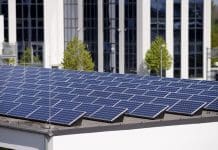European countries are not ready to take advantage of the benefits smart buildings can offer, says new analysis from the BPIE
European countries are missing out on the opportunities that smart buildings offer. An analysis from the Buildings Performance Institute Europe (BPIE) revealed despite the advantages of smart building no EU member state is fully prepared to take advantage of these benefits.
Smart buildings have the ability to interact with energy systems as well as produce, store and consume energy efficiently. The analysis examined aspects such as dynamic operability, energy-system responsiveness, renewable energy uptake as well as dynamic and self-learning control systems to judge Europe’s preparedness for an increasing share of smart buildings.
Are you ready for the smart revolution?
In terms of smart-readiness, Sweden, Finland, Denmark and the Netherlands are ahead of the curve, having implemented enabling policies. However, most member states show little progress in encouraging the energy storage capacity in buildings. This is despite numerous projects proving the economic viability of smart buildings.
One of the main issues raised by the analysis was that member states simply do not have “smart infrastructure” needed in place. Only Sweden, Finland and Italy have completed their deployment of smart meters across all their consumers. While a number of other nations have begun to roll smart meters out, progress remains slow.
The BPIE said EU legislation could aid with this, actively encouraging the implementation of smart infrastructure by enabling an electricity market with flexible pricing, empowering consumers, and increasing renewable energy production, self-consumption and storage.
Consumers need to take control of energy consumption
Oliver Rapf, Executive Director of BPIE said: “As consumers are at the centre of the EU’s legislation for a low-carbon, healthier and more comfortable building stock, they should be empowered to take control over their energy consumption and production.
“Smart and efficient buildings can deliver direct benefits for citizens in terms of lower energy bills and more comfortable homes, and wider benefits for the European economy triggering innovation and creating new job opportunities.”
The BPIE also said while it welcomed the ‘Clean Energy for All Europeans” as an indicator of smart-readiness, it needs greater monitoring to enable Europe to create a smart and decarbonised building stock by 2050.













